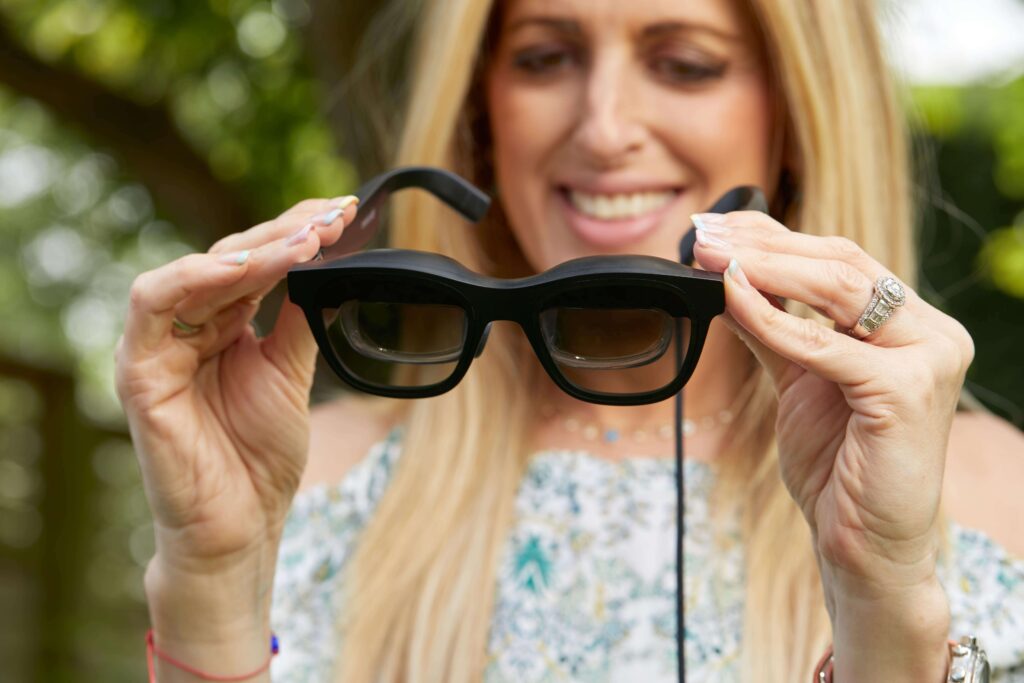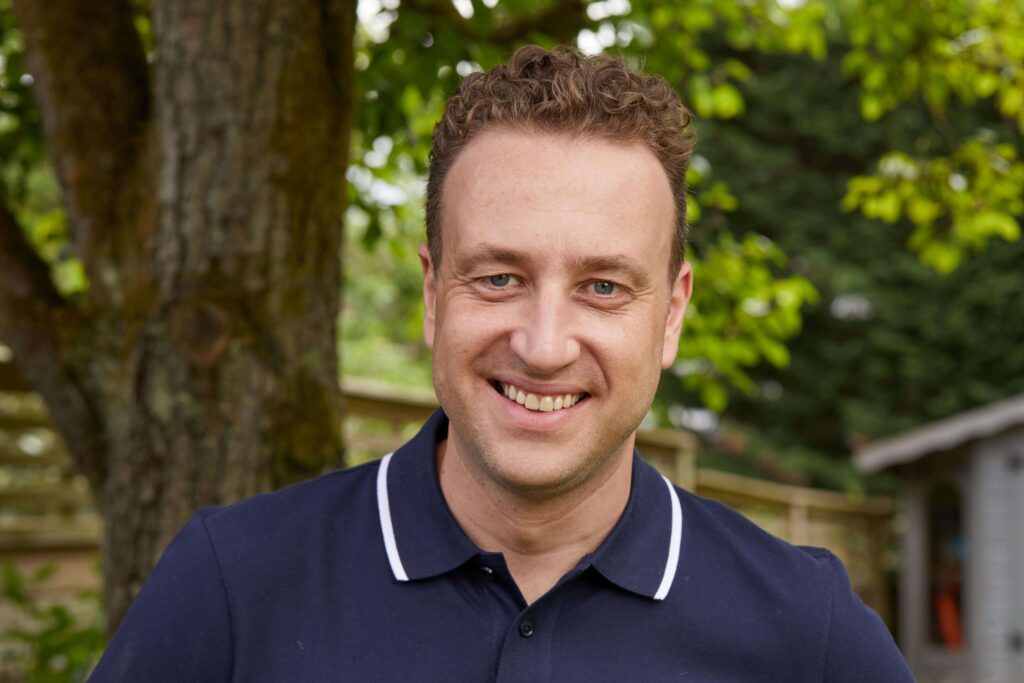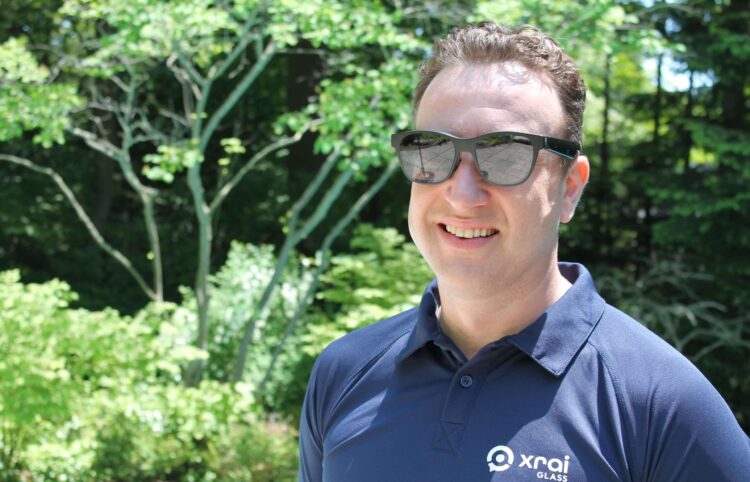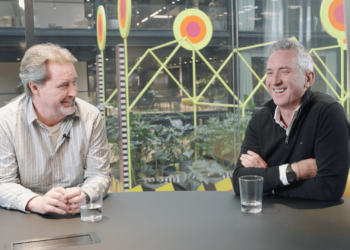Running an ISV is “a lot harder” than heading up a professional and managed services firm, CEO Dan Scarfe attested as he teased what is next for his XRAI Glass venture.
Scarfe fulfilled a long-held dream of launching a software venture in 2022 after his previous employer, Microsoft professional services partner New Signature, sold up to Cognizant in 2020 (Scarfe sold his business to New Signature in 2016).
Two years on, Scarfe’s award-winning start-up has moved beyond its roots “subtitling the world” for the deaf and hard of hearing by launching a real-time translation service. It is also plotting a “big push” into the channel.
Two “slight problems”
Talking to IT Channel Oxygen, Scarfe was quick to warn that the ISV world he’d spent so long coveting isn’t “all white picket fences like we thought it would be”, however.
XRAI Glass has only recently begun billing customers, he confided.
“I used to run a professional and managed services business and every day we used to dream of what it would be like to run an ISV. [We thought] you’d just wake up every morning and count the money coming in,” he said.
“It was a deliberate decision, when we started XRAI, to say ‘I’m doing an ISV; to hell with that professional and managed services stuff – it’s too hard’.”

Scarfe immediately ran into two “slight problems”, however.
“The first thing is you’ve actually got to create something before you can sell it. It sounds obvious, but with professional services, you can start billing on day one, whereas with an ISV we’re only just now starting to bill two years in,” he said.
“And then the second thing is this thing doesn’t just sit there generating money. You’ve got to constantly be evolving, constantly iterating, and you’re constantly worrying that you’re going to wake up the next morning to some announcement from OpenAI that basically destroys your entire business overnight.”
Translation revelation
XRAI Glass is a business that isn’t just iterating, but branching out into whole new areas and routes to market, however.
The original idea of combining the latest speech-to-text technology with augmented reality glasses came when Scarfe observed that his Grandad was struggling to engage in conversation at a family meal at Christmas.
“We’ve got users that use this technology that are able to leave the house for the first time in ten years,” Scarfe said.
Although the original focus on transcription and accessibility remains “super important”, XRAI Glass in May announced a move into the auto-translation space (drawing on technology similar to that announced at Microsoft Build).
“There is nothing like this available today,” Scarfe said of its new ‘XRAI Babelfish’ feature, which can auto-reverse conversations in real-time and will soon be available in a Microsoft Teams version.
“We’re taking advantage of all these amazing Microsoft services that are making it possible. You can pull out an app and for the first time ever have a fluent two-way conversation with someone who doesn’t speak the same language.”
“Big push” into channel

On the back of this diversification, XRAI Glass has embarked on a “big push” into the channel, Scarfe said, emphasising that it now has an Azure marketplace offer available.
“It’s a lovely story [for partners],” he said.
“‘Do you have folks that work for you who are hard of hearing? Great – here’s a solution for you. Do you conduct meetings with people who don’t speak English? Great – here’s Babelfish’.
“We’ve got a whole partner commission-split model, so you can make really good money selling this, on top of whatever Azure consumption that drives for them.”
With a “software first” approach (“we did not want to get into the manufacture of augmented reality glasses”), XRAI Glass’ software works across numerous glasses manufacturers and clouds, Scarfe said.
“I was Mr Single Cloud before, now I’m Mr Multi Glass,” Scarfe said, referencing his died-in-the-wool Microsoft past.
“We’re almost like an aggregator in the middle, where a user can pick what device they want to run this on. You can run it on a phone as well, or a laptop, or on AR glasses, and then connect to any cloud service.”
Despite this, Scarfe hinted that XRAI Glass may at some point bring out its own glasses that channel partners can then offer.
“Terrifying and very hard work”
So, is it harder to run a Microsoft professional services partner, or an ISV?
“It’s a lot harder to get going [with an ISV] as you’ve got to invest God knows how many millions into building the thing with not a penny coming in, which is terrifying and very hard work,” Scarfe responded.

“The dream is that it becomes easier, because the thing is so good it sells itself. But I’ve not got to that point yet.
“The stakes are so much higher. It’s such a low risk doing a services business and it’s such a high risk doing a software business. But if you get it right the rewards are asymmetric.”
Reflecting on the journey so far, Scarfe said XRAI Glass has built “what I’d argue is one of the most sophisticated apps in this space in the world”.
“I’ll tell you in two or three years’ time whether or not it was the correct decision, or whether I should have done another professional services business,” he concluded.
Doug Woodburn is editor of IT Channel Oxygen
















